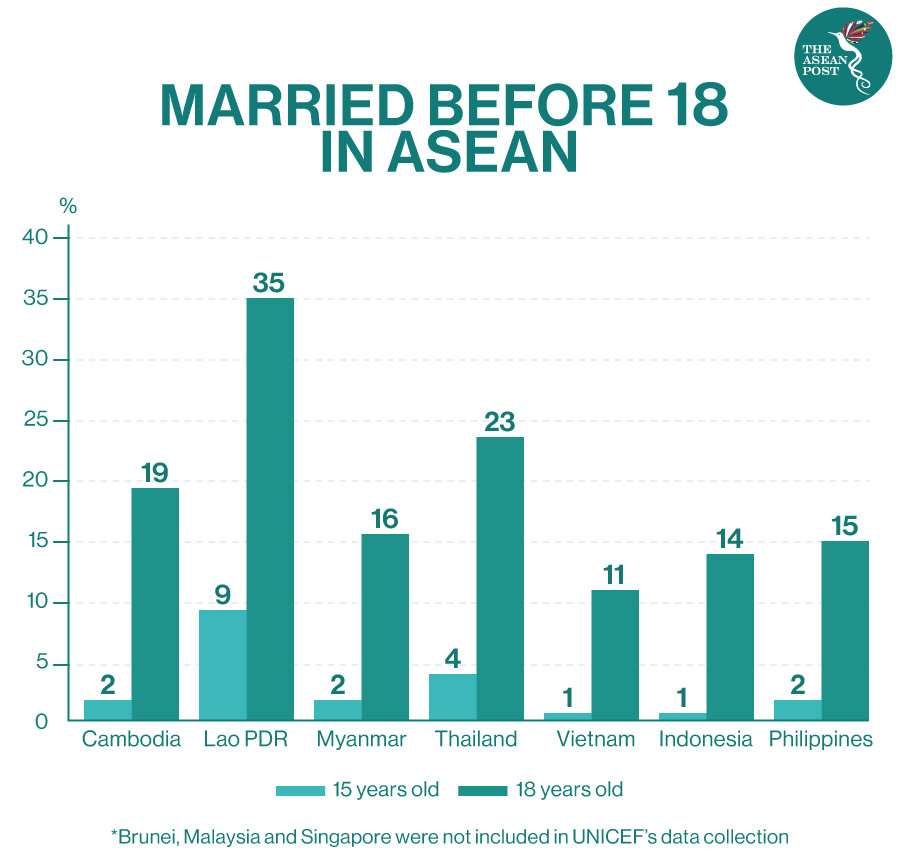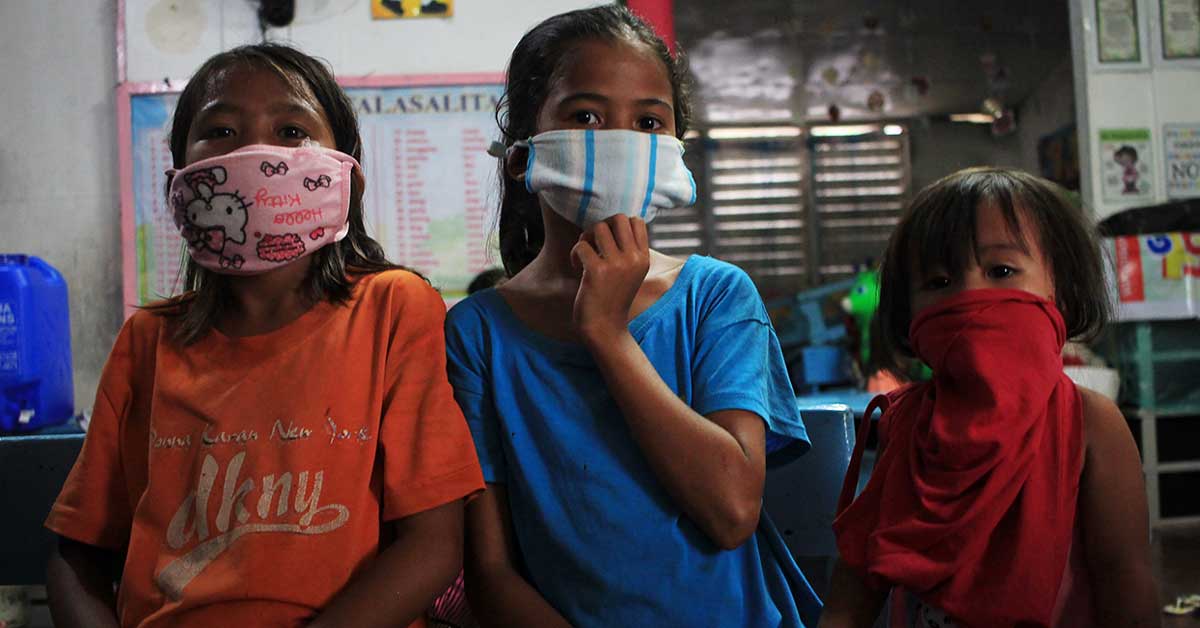Not long ago, The ASEAN Post published an article titled, “Ending Child Marriage In The Philippines.” The article discusses about the new Girls Not Brides Act or Senate Bill No. 1373 that has recently been approved in the Philippines which criminalises child marriage between minors or between a minor and an adult.
Under the bill, anyone who causes, fixes, facilitates or arranges a child marriage will be fined PHP40,000 (US$829) or suffer prison time for six years. Moreover, if the perpetrator is an ascendant or guardian of the minor, the penalty imposed is around 12 years imprisonment, a PHP50,000 (US$1,036) fine and loss of parental authority. Whereas any person who officiates a child marriage would be meted at least eight years imprisonment and a fine of US$829.
The bill also states that any child marriage is considered void from the beginning, without need for annulment.
But just last week, a few images of a wedding ceremony in the Philippines began circulating on social media. The union, said to have taken place on 22 October, was between a 48 year-old-man and a Filipino teenager. According to media reports, the girl is the man’s fifth wife.
The 13-year-old girl would now have to shoulder responsibilities of a wife and carry the burden of caring for the man’s children who are around her age group from his previous marriages.
“I am very happy to meet her and to be able to spend the rest of my life with her. She will take care of my son,” said Abdukrzak Ampatuan who lives in the small town of Mamasapano, Maguindanao province located in the Bangsamoro Autonomous Region in Muslim Mindanao (BARMM).
BARMM
The United Nations Children's Fund (UNICEF) said that the Philippines has the 12th highest absolute number of child brides in the world at 726,000. An estimated 15 percent of Filipino girls are married before they turn 18, while two percent are married before the age of 15.
Therefore, observers and activists were very much pleased and welcomed the recent senate bill which prohibits and declares child marriage as illegal in the ASEAN member state.

But decades long cultural practices such as child marriage in some regions in the Philippines could be difficult to change.
BARMM, also known as Bangsamoro is an autonomous region located in the southern Philippines, where most of its 3.8 million residents are Muslims. Although there are limited data in relation to child marriages in the region, the practice is reported to occur in BARMM, especially common among Moro and Indigenous communities, according to a UNICEF report titled, “Children in Bangsamoro Autonomous Region in Muslim Mindanao.”
The report also notes that one of the underlying causes behind the practice is that families may have many children, and the income of the family cannot support and educate them all.
“Mostly, the girl belongs to a poor family and her parents agree to a forced marriage with a man with a better financial standing so her family will have one less burden,” said Suwaira Abdulmaula from the United Youth of the Philippines-Women, Inc. in Maguindanao.
It was reported that some communities in the region have even married off children as young as 12 years old or once they have attained puberty.
Non-representative survey data produced by Mediators for Sustainable Peace and UNICEF found that in 2014, in 83 percent of provinces surveyed, it was common for females to marry between the ages of 15 and 17, while 17 percent of females were reported to have been married while aged nine to 14.
“These figures are dramatically higher than the figures from Philippines nationally,” noted the UNICEF report, adding that the survey data, however, does not provide an authoritative picture of the situation for child marriage in BARMM.
Girls Not Brides, an international non-governmental organisation (NGO) committed to ending child marriages also identifies another issue with the practice – religion. According to the NGO, most registered child marriages in the Philippines take place in the BARMM, where women can marry at a very young age under the 1977 Code of Muslim Personal Laws.
As the Philippines passes the recent Senate Bill No. 1373, some rights activists in the country said the implementation will be difficult. A member of the National Ulama Conference of the Philippines told the media that he did not think the proposed child-marriage law was “automatic for Muslims” given the existence of the Code of Muslim Personal Laws.
He explained that there was an ongoing discussion between the ulamas (Muslim legal scholars) on the conflict. “We are trying to reconcile the two views – the Code says 15 (is the marrying age), while the (proposed Congress legislation) says 18,” he said to the media.
Related Articles:
